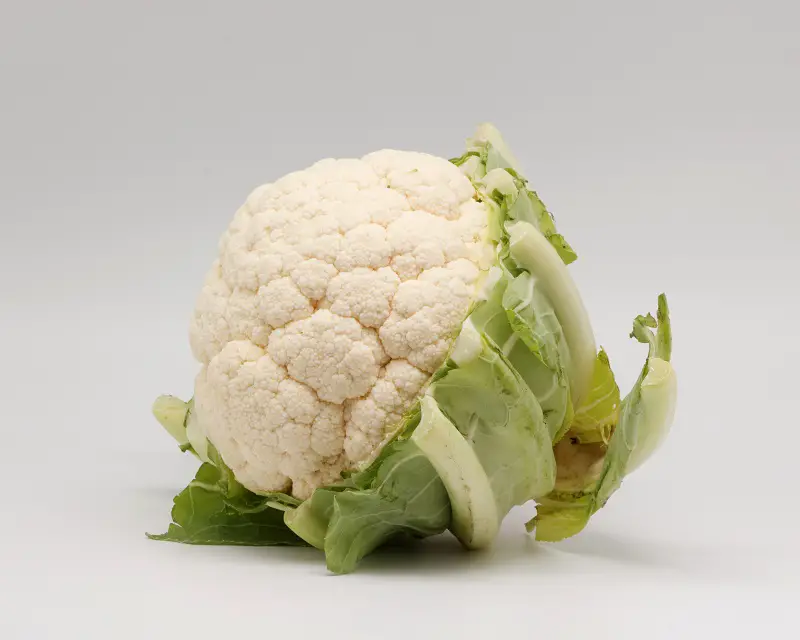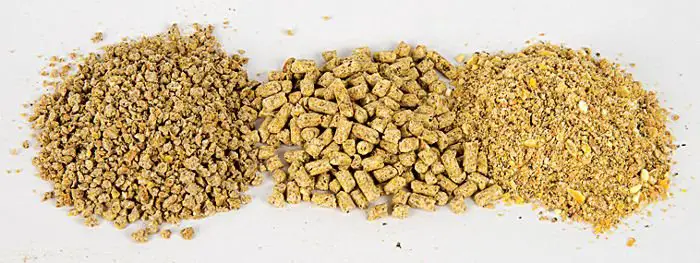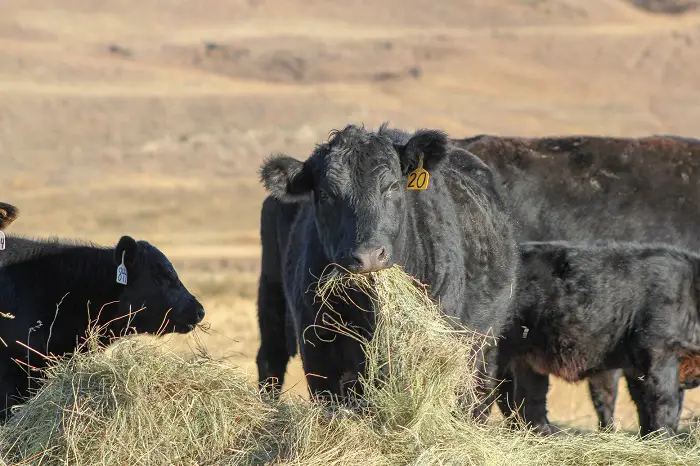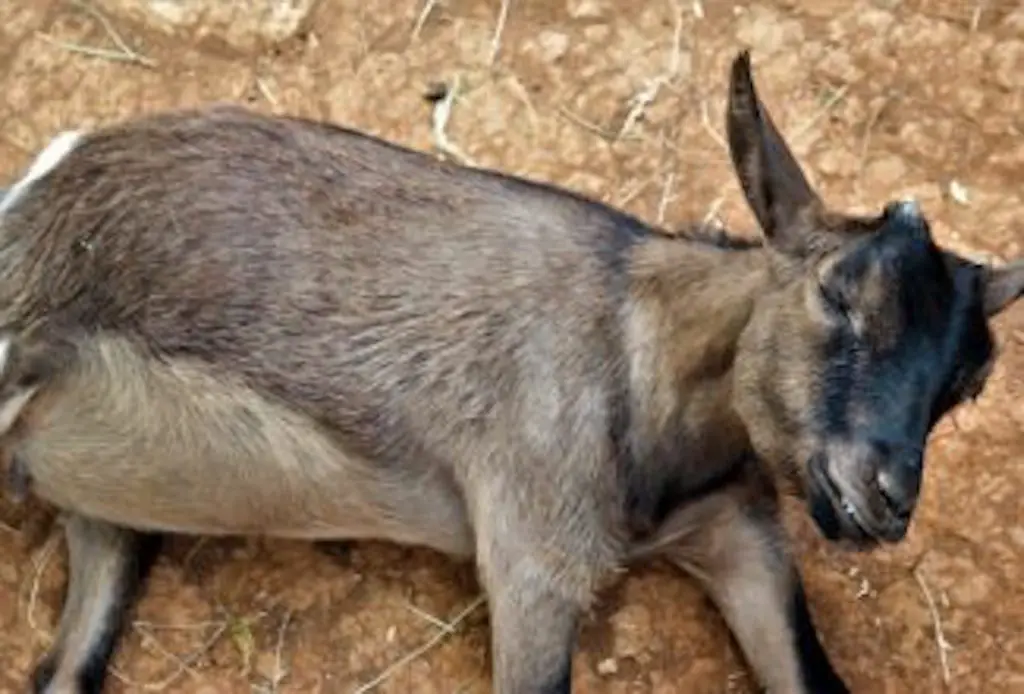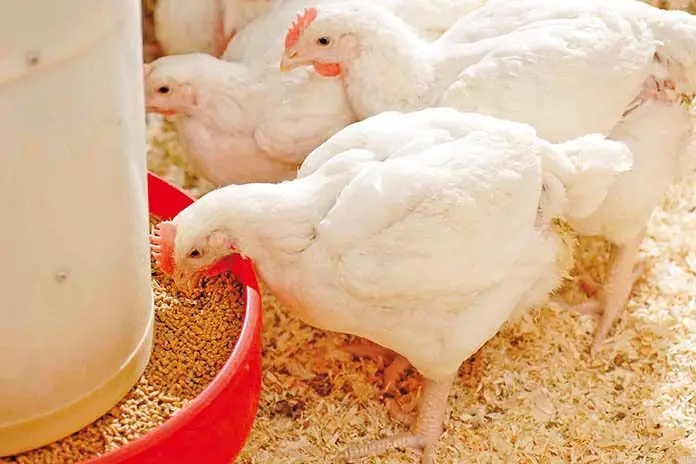Goats are one of the ruminant animals that are known to digest just about anything without facing too many problems. In this article we are going to be discussing whether goats can eat cauliflower and what potential benefits they can derive from this amazing vegetable.
Contents
What Is Cauliflower
Cauliflower is a vegetable that belongs to the Brassica oleracea family together with other vegetables like broccoli, radish and Brussels sprouts. Cauliflower means flowers of cabbage in Latin and this vegetable certainly looks like cabbage up until the large leaves start opening up. When the leaves open up the cauliflower starts appearing and it is usually globe headed with a cream whitish in color.
Can Goats Eat Cauliflower
Yes goats can eat cauliflower mainly because it can be digested by the rumen. When giving cauliflower to goats make sure that you cut it into small pieces so that the goats do not choke when eating it. Goats also eat cauliflower because they are filled with lots of vitamins and minerals that are essential to the goat’s body.
Things To Avoid When Feeding Cauliflower To Goats
Although goats can eat cauliflower, there are certain things you need to do in order to ensure that your goat remains healthy. For starters, when feeding cauliflower to goats, avoid replacing the goat’s diet with only cauliflower. This is because cauliflower does not contain all the minerals and nutrients needed by a goat. In simpler terms, cauliflower does not meet the energy requirements or dietary needs of a goat. Furthermore, cauliflower contain glucosinolates which can cause serious health problems to goats when consumed in excess. Therefore, a rule of the thumb is that cauliflower should only consist 10% of the daily diet of a cow in order to avoid such problems. Therefore, try by all means to offer cauliflower as a treat to your cows rather than as a substitute for feed. The other thing to avoid is giving goats cauliflower without washing. This is dangerous because the cauliflower might be infested by serious germs which can harm goats when ingested. You should also remember to cut the cauliflower into small bite size pieces so that your goats do not choke when eating cauliflower.
Nutrition And Health Benefits Of Cauliflower To Goats
Improves Immune System
One of the health benefits of cauliflower to goats is that it helps to boost their immune system. Cauliflower contains various vitamins including vitamin C which is known for helping build antibodies in the goat’s immune system. When a goat has enough antibodies, this means it can easily resist and fight certain diseases.
Prevents Oxidative Stress
Another common health benefit of cauliflower to goats is that it helps to prevent oxidative stress. This is because it contains antioxidants that helps to fight diseases caused by oxidation. Goats that have oxidative stress usually produce poor quality milk and meat. Therefore, it’s important to include moderate amounts of cauliflower to your goat’s diet in order to avoid oxidative stress.
Contains Magnesium
Cauliflower contains magnesium which is a mineral that helps to improve the nerve and muscle performance of a goat. If a goat consumes a moderate amount of cauliflower, there is a good chance it will not develop any muscle or nerve problems.
Aids With Digestion
Goats that eat moderate amounts of cauliflower are known to have good digestive systems. This is because cauliflower has a high water content which means it can easily be broken down during the digestion process. If you want to improve the gut health of your goat you should definitely consider adding cauliflower to its diet.
Contains Vitamin K
Cauliflower contains vitamin K which is an essential vitamin needed by goats. Vitamin K helps to strengthen bones and reduces cases of blood clots in goats. So if you have a goat that usually experiences blood clots or bone problems, you should definitely consider adding cauliflower to its diet.
Can Goats Eat Broccoli?
Yes goats can eat broccoli. This is because broccoli can be digested by the rumen. Furthermore, broccoli contains a number of minerals and vitamins that are essential to the functioning of the goat’s immune system. When giving goat’s broccoli to eat, make sure you slice it into small pieces so that the goats do not choke when consuming it. Furthermore, always ensure that you start by washing the broccoli before giving it to the goats.
Are Cauliflower Leaves Edible For Goats?
Yes cauliflower leaves are edible for goats. They also contain a number of vitamin like Vitamin C and K as well as other minerals like potassium, calcium, iron and magnesium. These vitamins and minerals play a crucial role in the overall development of a goat. When feeding cauliflower leaves to goats make sure that you wash them first in order get rid of bacteria. You should also make sure that you do not give the goats an excessive amount of cauliflower leaves as this can cause serious digestive problems to them. This is because cauliflower leaves contain glucosinolates which can cause serious health problems if consumed in excess.
Is Tomato Good For Goats?
Yes a tomato is good for goats. This is because it is filled with vitamins needed by the goat’s body. It is worth noting that unripe tomatoes are not good for goats. This is because they contain a compound known as tomatine which is highly toxic to goats. It is also worth noting that the leaves and stem of a tomato are also not good for a goat. This means the only part of a tomato a goat can eat is the ripe tomato.
Are Potatoes Healthy For Goats?
When potatoes are consumed in moderate quantities they are healthy for goats however, when consumed excessively they can cause serious health problems. This is because potatoes are too starchy and when consumed in excess the goats digestive system faces difficulty in digesting potatoes which can lead to bloating or serious digestive problems.
Conclusion
Goats can eat cauliflower since it can easily be digested by the rumen. It is worth remembering that cauliflower contains glucosinolates which can cause stomach problems to goats when consumed in excess.
